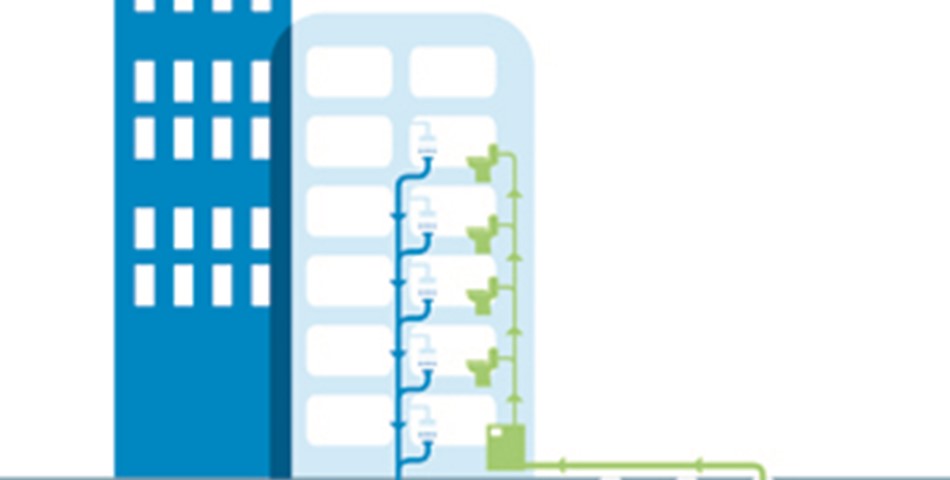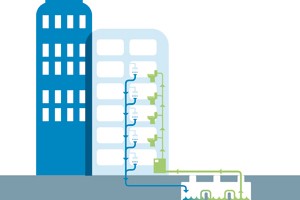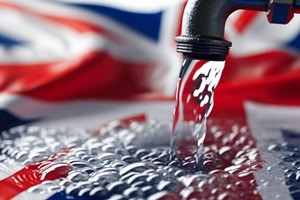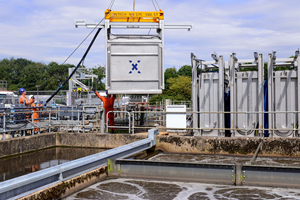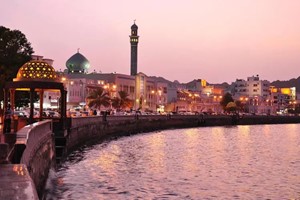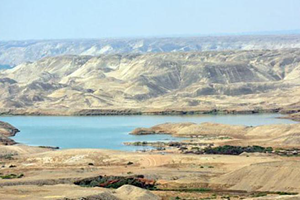When it comes to utility procurement in the UK, water is often the poor relation to gas and electricity. The comparatively low cost of water supply and waste water management, coupled with an inflexible marketplace, has led to it being a little understood, little noticed line on many organizations' P&L. However that is all about to change.
In April 2017, just like the transformation of the gas and electricity markets previously, water supply in England is set to become a competitive retail market as opposed to the current monopolistic approach. The move will create the largest retail water market in the world with 1.2 million customers and a total market value of USD2.98 billion. Most organizations will not have had to worry about water before because until now, there's never been a choice as to how they manage water supply across their property estate. So how can non-household operations in England make the most of the open market opportunity? We asked independent water consultancy Waterscan to bring us up to speed fast with a quick guide to what's happening and how to benefit.
A Quick Guide to the English Open Market: What is changing?
Water supply is currently dictated by an organization's location, with very few opportunities for customers to switch suppliers or negotiate pricing; but, in April 2017, it will become a competitive retail market. This will give commercial and non-residential customers the option to switch to the supplier who will give them the best price and service level regardless of where they operate in England. The market will be split into wholesale businesses (focused on water treatment and supply) and retail businesses (responsible for front end consumer services and billing).
Why is the market opening up?
The regulator of the water sector in England and Wales, Ofwat, cites climate change leading to more droughts and floods, advancing environmental standards and a fast growing population as key drivers for this initiative. Additionally, many of England's water companies have a notoriously bad customer service record and billing performance. There have been frequent stories of overcharging, issues with billing accuracy and poor data/meter management.


What will happen to prices?
The current prediction is that prices will reduce: a small margin will be available to retailers, a proportion of which will be passed through to customers. There should also be a benefit in terms of the hidden cost of administration time. For multi-site organizations who may be dealing with over 25 separate water companies, switching to a single supplier should consolidate billing, saving administration time and effort.
Will customers profit or will it be the water companies who will see a bottom-line benefit?
The idea behind retail competition is to focus on the customer. To fully benefit however, customers will need high quality data for use in procurement negotiations. Of course, saving money is an important consideration but there are significant environmental benefits expected too. As businesses and other organizations act more responsibly, and consumer knowledge around water increases, water management could become an important factor in sustainability strategies.
What do organizations have to do in the short term?


It's not a legal requirement to act - but it could be a costly mistake if they don't. Taking no action is likely to mean being put on 'default tariffs' by existing suppliers, which, as experience has shown in the gas and electricity sector, is usually more expensive. Waterscan advises conducting a review of existing water bills to ensure current charging is correct. If not, rectify it first before switching supplier. This will ensure any retrospective issues are resolved with refunds/rebates maximized with the existing supplier. Then, they should get a good understanding of the current operational water footprint: how much water is used, where and when? This is likely to highlight several water saving initiatives like water re-use. Automated Meter Reading (AMR) meters are a sensible solution for ongoing proactive water management too.
And in the longer term?
In an economic landscape where more attention is often given to short term cost reduction as opposed to driving long term strategic value, effective water management is actually an area that could provide both: a quick win and good returns over the longer term. Saving money is important but, with the increasing need to treat water consumption with care, saving water is equally important. Taking a proactive approach to water management will help organizations towards meeting sustainability targets and pay dividends in the mid-long term. An outsourced strategic procurement service, real-time consumption metering and data analytics, the deployment of the next generation water re-use technologies can all play an important role in getting organizations 'water fit' in the new market. Impressive savings have been seen by thinking holistically about water use, installing greywater recycling and rainwater harvesting systems into new buildings for example.
Case Study: Best Practice Procurement - Tesco
In preparation for English market opening, retailer Tesco commissioned Waterscan to look at how it could optimize current supply agreements in Scotland, where retail competition already exists. Utilizing Waterscan's well-structured Water Supply Procurement service and overlaying this with the consulting team's unrivalled insight into water charging systems enabled Tesco to make an informed decision about their water retailer and save USD932,625 on its water costs. This achievement has now set a benchmark for best practice ahead of the English market opening.
Case Study: Working Holistically - Premier Inn
Waterscan installed an innovative greywater recycling system for the leading hotel chain Premier Inn at Abu Dhabi International Airport as part of the airport's multi-billion dollar redevelopment and expansion. The system takes water used for showering and bathing across the hotel's 300 rooms and treats it through an ultra-filtration membrane before feeding it back into the hotel for use in flushing toilets and for irrigation. The initiative is vastly reducing mains water consumption, already saving an average of 735,000 liters (24 percent) of mains water each month - that's 60 liters per guest. Over the course of a year, this is the equivalent of 110,000 baths. 100 percent of toilet flushing at the hotel now uses recycled water.



